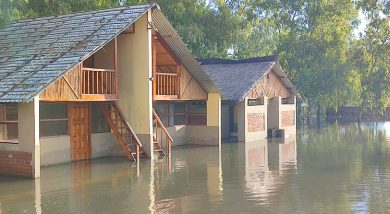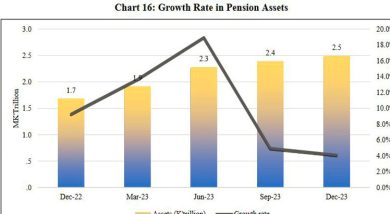Zaithwa Fabiano-research scientist
They say everyone has the strength, the patience and passion to reach for the moon and that if you fall, you will land on the stars. Such an inspiration quote is worth sharing.
This is the story of Zaithwa Fabiano, a research scientist who is leading on creating a cervical cancer telemedicine system.

Telemedicine is the diagnosis and treatment of patients by means of telecommunications technology and in this innovation, patients will be accessing doctors or any help through text messaging use of phones.
The innovation, which is a personal project, uses telemedicine in the health system to reduce the time between a cervical cancer suspect presenting to their rural health facility and their review and management by skilled health workers.
According to Fabiano, who is the last born in a family of five children, she says her passion has always been in science, basically, to answer questions and solve problems with logic.
“I enrolled at Chancellor College, University of Malawi (Unima), where I studied Bachelor of Science and started majoring on organic chemistry.
“In my third year, I transferred to College of Medicine (CoM), where I studied Bachelor of Surgery (MBBS) and graduated in June 2016 with flying colours,” says Fabiano in an interview with Every Woman.
Born and raised in Zomba, Fabiano attended her primary school at Zomba Private Primary before proceeding to Marymount Secondary School.
On her technological innovation-Telehealth, Ehealth and Mhealth-Fabiano says the country stands to benefit in terms of improving access to health services particularly those who cannot reach health facilities particularly useful for vulnerable populations and those in hard to reach areas.
She also says the innovation will reduce the workload on health workers by automating some activities which would have; otherwise, been done by the human resource.
She says: “It allows for connectivity and ease of consultation among health workers through quick, easy and safe communication channels with opportunities to review patients, patient records, investigative images and laboratory results in real time.
“Besides, it offers safe and reliable data storage provision for patient records.”
Fabiano says her inspiration in the health profession arose from her desire to solve problems and taking care of the people around her.
She says she has always felt an urge to help when she saw ill people hence her developing a desire to understand what was wrong and how she could help.
“As I grew up, my love for science and desire to ease suffering of others developed into a dream to become a medical doctor. Medicine was the perfect way for me to combine my two passions, science and working with people,” she further explains.
Currently, Fabiano is working at the school of Public Health and Family Medicine at CoM where her duties involve health education and awareness of health issues, healthcare options and research that the college and the healthcare system offer the Malawian and global populations.
Based on her experience in the health field, Fabiano says a lot of the health related problems stem from lack of knowledge, lack of awareness of the conditions, when and where to seek assistance and care for those with particular health conditions.
In 2015, she volunteered as a medical student at Lisungwi Health Centre in Neno District, where she realised the need for improvement in the health system; hence, wanted to understand why some health problems exist in the context she experienced and how best to address them.
She says her interest in cervical cancer grew because it is preventable and curable but yet Malawi has the highest number of new cases of cervical cancer in the world.
Studies on the other hand have shown that it takes very long periods of time for women suspected of having cervical cancer to obtain the health services they require.
Basically, this is due to many reasons but the two that stand out are limited skilled human resource and difficult access to the tertiary health facilities due to many reasons, some of which are poor roads and long distances.
Fabiano thus says in her volunteer work in various rural health facilities, she thought of ways to reduce the challenges women face in obtaining the care they need.
She says reducing this time should reduce the morbidity and mortality of these patients and ease the process of screening and treatment.
Currently, Fabiano is also assisting on the creation of a cholera tracking telemedicine systemt through the School of Public Health and Family Medicine, CoM, Ministry of Health in partnership with Unicef and a group of Brazilian Epidemiologist from LIKA-EPITRACK to use various forms of technology to detect cholera outbreaks and predict the spread.
The Malawian population has suffered severe morbidity and mortality over the years due to the multiple cholera outbreaks we have had, with an increase in the frequency of the outbreaks due to the floods.
The health systems have suffered the financial burden and workload on health workers in health service provision for patients and also in ensuring the control of these outbreaks.
“With this technology we should be able to intervene at an earlier stage to reduce the human suffering and loss of life, and also financial and work burden on the health sector,” she further adds.
She says the Malawian health system has many areas which are doing very well and also many other areas with challenges.
Fabiano says the health systems put in place have been designed to achieve equity for all: both rural and urban health service users.
However, implementation on the ground is not always reflective of the strategic plans designed for the target beneficiaries and says this is a multifactorial challenge which can be further discussed in another forum.
She further states that handsets and internet services in health care provision are also being used in rural areas to address the problem of access.
The use of handsets and internet in health is called m-health and e-health.
These projects are actually doing exceptionally well and benefiting the rural populations greatly.
Some of these projects are so outstanding and have surpassed targets, and have since been recommended for implementation in other African countries due to the efficiency and effectiveness of the project results.
These types of projects are being implemented using health workers and volunteers in both urban and rural areas who may be using personal handsets or have been empowered with these resources. This is the direction health service provision is going globally.
Her advice to young people is to always look forward, emphasising that what they do today determines what kind of future they will have.
“If you invest little time, energy and effort in your education, that is what you will reap, nothing more.
“If you invest time, hard work, dedication and a true and deep desire to acquire knowledge and skills, you will harness your full potential and reap endless possibilities in your life,” she says.





